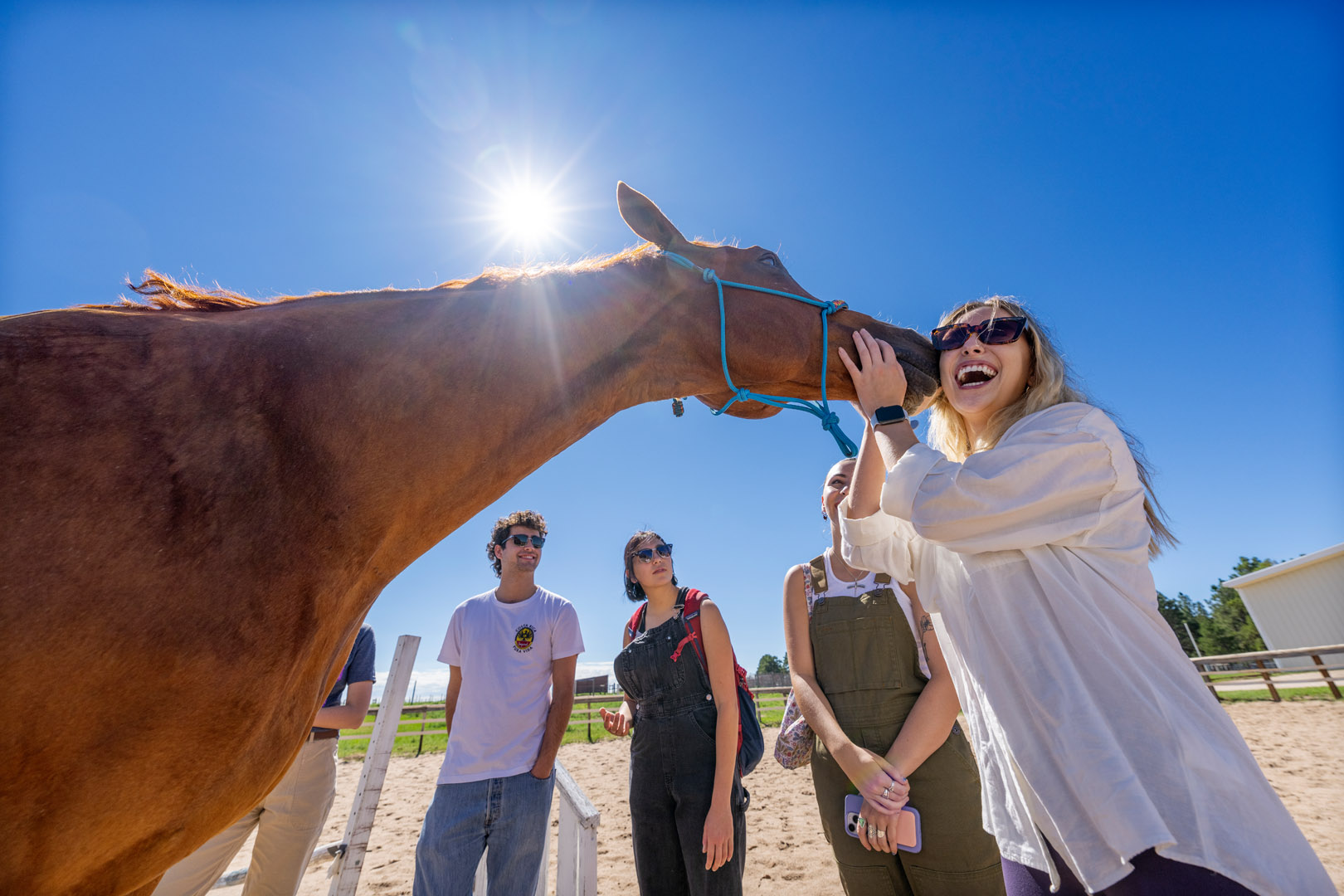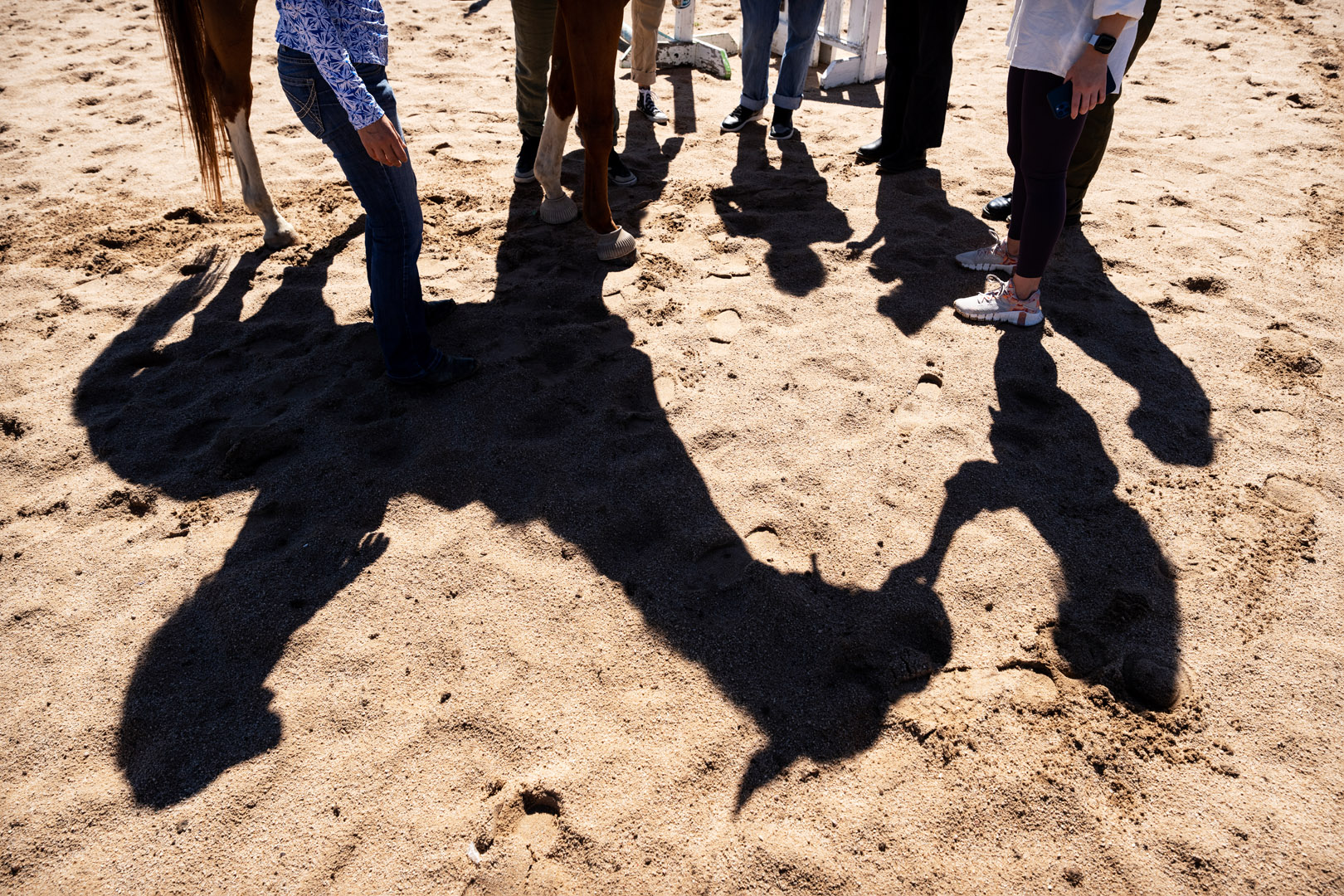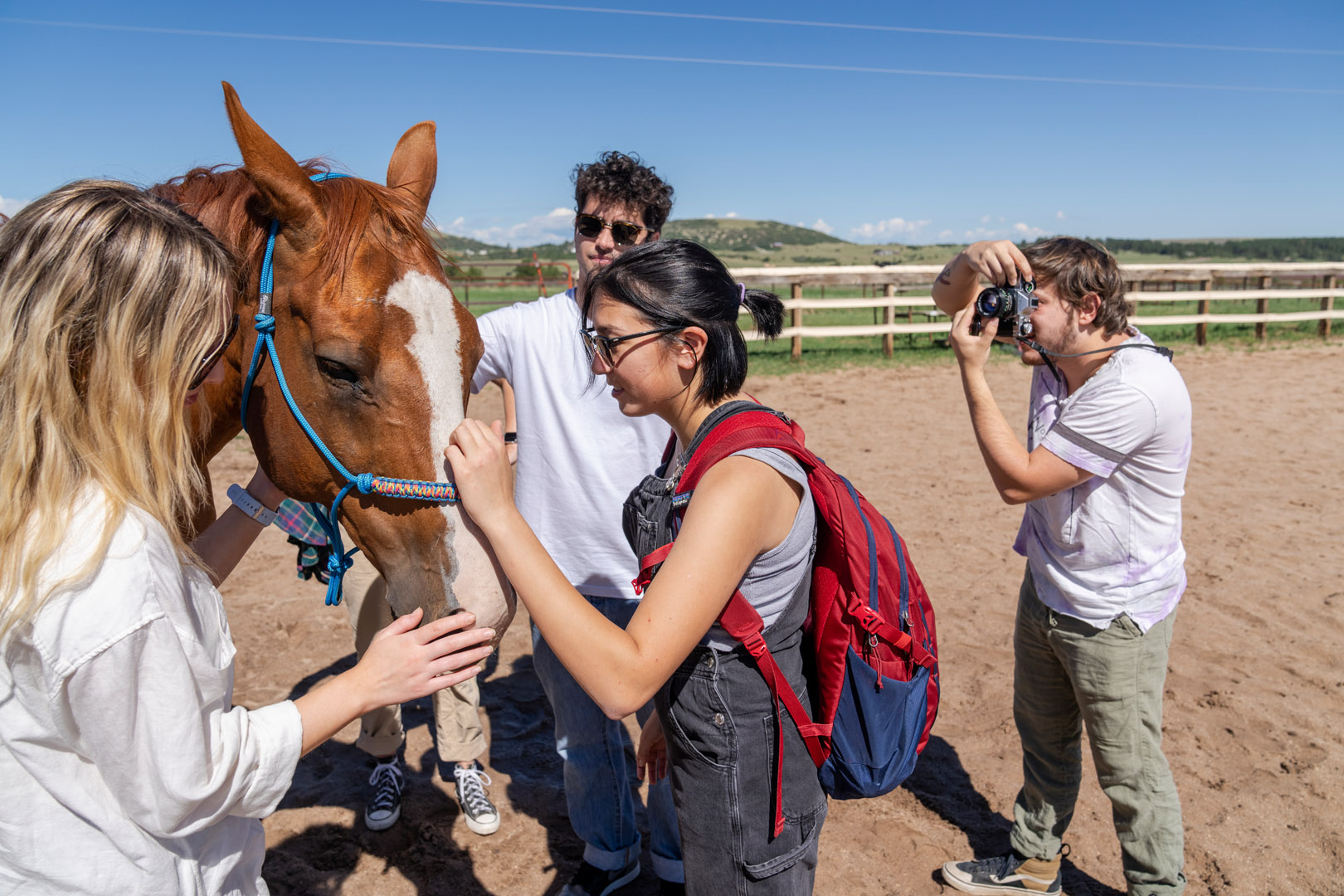When Amanda Minervini, assistant professor and director of the Italian Program, was planning her First-Year Program class on the rise of fascism last year, she had an idea that would inspire and teach her students more than just the history of fascism: Equine-Guided Learning and Healing Experience.
“EGLHE inspires students to look for communication in places they are not used to, for instance, in the very subtle ways an equine face and whole body change to signal relaxation, pleasure, discomfort, satisfaction, or wanting a carrot,” says Minervini. “[Horses] are the masters of embodied emotions! This type of observation requires attention to detail, presence, and attunement. Being present and aware helps students focus.”
Students often see EGLHE as a soothing experience, which is a welcome shift from the fast pace of the Block Plan, Minervini adds.
Although Minervini first had the idea of creating EGLHE while teaching her First-Year Program in 2021 when students got back to class after a year of isolation, she also used it this past summer, during her Elementary Italian 1 class.
Minervini has had a passion for horses before she could talk. When she finally bought a horse, which she named Jimmy, she realized that Jimmy did not do well with traditional training methods. This lead her to discover and study a special training method, created by Warwick Schiller, called Attuned Horsemanship.
The attuned horsemanship method is similar to the inclusive student-centered pedagogy, which Minervini studies and practices as a professor. “Think Freire, bell hooks; think of 'education as the practice of freedom.' It is very different from traditional training or teaching, which is hierarchical, and in which teachers/trainers are filling students with their knowledge,” says Minervini. “Equines and students actively create their own learning and hence should become independent learners. I quite naturally put these methods together and so EGLHE was born.”
Minervini has a website where students write testimonials about their experience with EGLHE. Many students cited feeling less anxious, calmer, and more focused after a session with Jimmy.
"In comparison to other horses I’ve interacted with, I could tell Jimmy was more aware of his surroundings and cared about meeting each of us, as opposed to following orders," one student wrote.
Minervini hopes to eventually collect data and run a study on the effects of EGLHE on mood and attention.
EGLHE is a nonprofit foundation directed by Minervini and Haley Griffis ’17. Minervini received a grant from Creativity & Innovation at CC, which allowed her to trademark EGLHE.
Minervini plans to offer students an opportunity to experience EGLHE again during her current Block 1 class on the rise of fascism.








